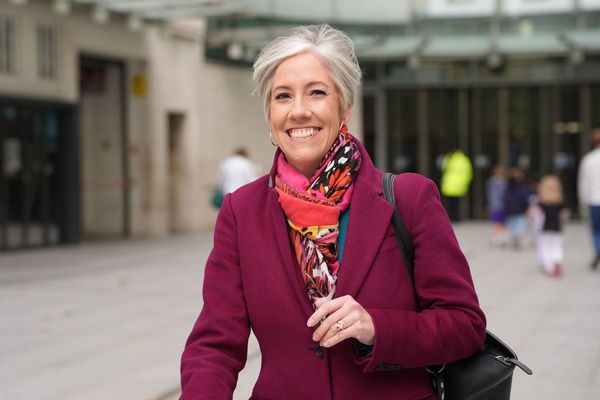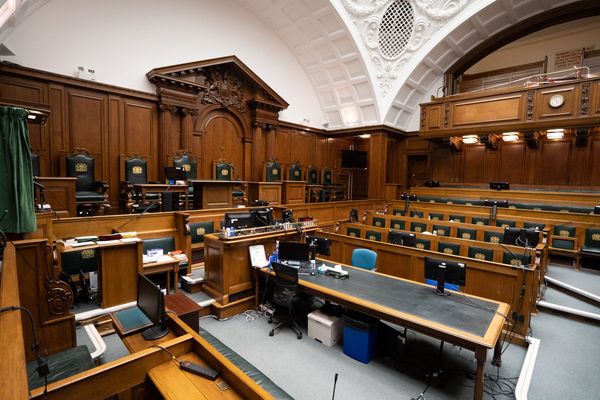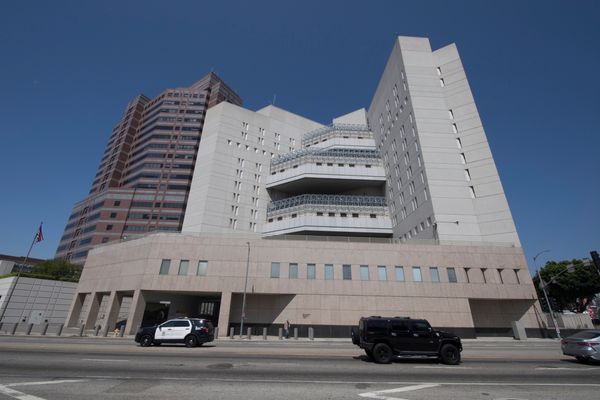
Lexington (United States) (AFP) - Leah Martin ended up in the emergency room "because of the immense stress" of being denied an abortion in her US home state of Kentucky.
Due to this "horrible" experience, she is now going door-to-door against a state ballot initiative that would cement Kentucky's near total ban on abortions.
Scott Van Neste, a pastor, sharply opposes the procedure.Surrounded by his eight children, Van Neste has begun attending demonstrations to protect the state's anti-abortion law.
Surprisingly, the two have something in common: They are new to the activist sphere.
Newfound activism may be a wildcard as US voters cast ballots November 8 in a variety of national, state and local races as well as on hot-button ballot initiatives.
Since the Supreme Court in June overturned the constitutional right to abortion and restored states' ability to ban the procedure, the issue has become a major ballot question.
Only four states have decided to hold referendums exclusively on abortion, decoupling the issue from platforms and political parties, and opening the door to citizens who are not very political to get involved in what is, for them, a matter of "values."
For Martin, it's a personal issue.
In June, the 35-year-old and her husband joyfully learned that they were expecting a second child.Unfortunately, at 12 weeks of pregnancy, the doctors detected a chromosomal abnormality.
"It was 100 percent certain that the baby would not live past 10 months at the absolute most," she told AFP.
The news came after the Supreme Court ruling, and the conservative Kentucky state legislature had just prohibited abortions.
"My doctors were crying with me...but essentially said, 'Hey, we can't help you.With the ban on abortion in Kentucky, you have to go to a different state,'" Martin said.
Martin said she ultimately ended up in the emergency room "because of the immense stress and panic that I put on my body from receiving that news."
But then came what she calls an "insane miracle," a one-week period "where a judge lifted the ban on abortion in Kentucky.And so I was able to receive the care that I needed."
To overcome her trauma, Martin, a marketing executive for whom politics has always been "a private matter," decided to get involved in the referendum campaign, going door-to-door in her hometown of Lexington.
"It is not in my nature to be knocking on doors...But some things are just too important," Martin said as she approached a stately home.
A short distance away, Molly Kimbrell, 61, is also trying her hand at canvassing.
"Politics is not my jam.But issues are," said Kimbrell, a nurse who had an abortion at the age of 14 owing to "a stupid kid mess up."
Voicing outrage that women no longer have that option, she decided to get "off the couch" and try to persuade voters.
'Big for me'
Displaying similar determination but from a different angle, Van Neste, 47, attended a "yes" rally outside the Kentucky Capitol in Frankfort on October 1.
He, too, is not used to this type of exercise: In his entire life, he has only demonstrated once.
But convinced that "all life is precious," he wanted to defend the law in his state even if it forbids abortion in cases of incest or rape.
"We would not want the child to be punished for someone else's wrongdoing," he said.
"This is big for me because I have four children that were adopted," said Van Neste, a Baptist pastor who doesn't hesitate to talk about the ballot during his sermons.
A 1954 law prohibits churches from endorsing candidates but does not apply to referendums, points out Addia Wuchner, organizer of the event.In the Capitol parking lot, several buses are from religious organizations.
This time, Wuchner said, "there can be that discussion from the pulpit in the churches."
Abigail Butler, 25, considers herself an independent voter.The theology student has volunteered at "crisis centers" that try to discourage women from having abortions, but she swears she is "not an activist, just passionate about the issue."
Originally from Florida, she made sure to register to vote in Kentucky to participate in the referendum.
The challenge is to avoid what happened on August 2 in Kansas, a conservative state, where nearly 60 percent of voters in a high-turnout election rejected an anti-abortion amendment.
The result gave hope to Martin, as does her father's attitude.
"My father is a Republican," she said, and opposed to abortions."But watching me go through my experience...I know that on this particular issue, he will be voting no in November."







